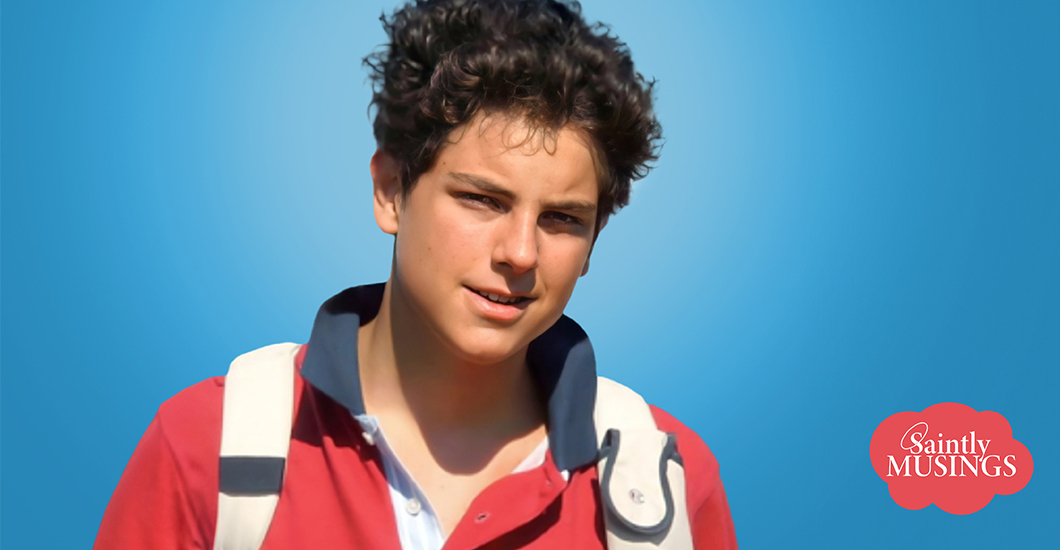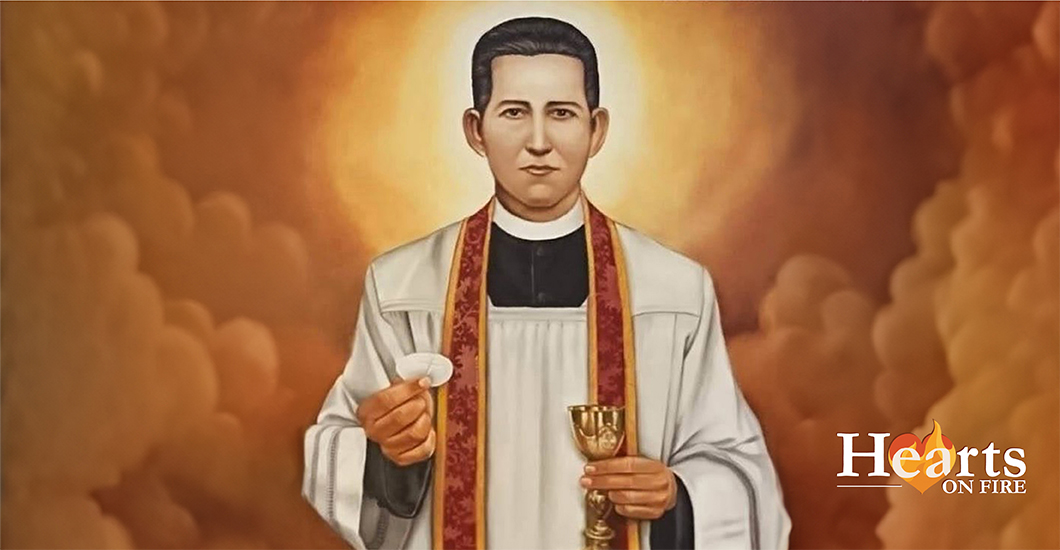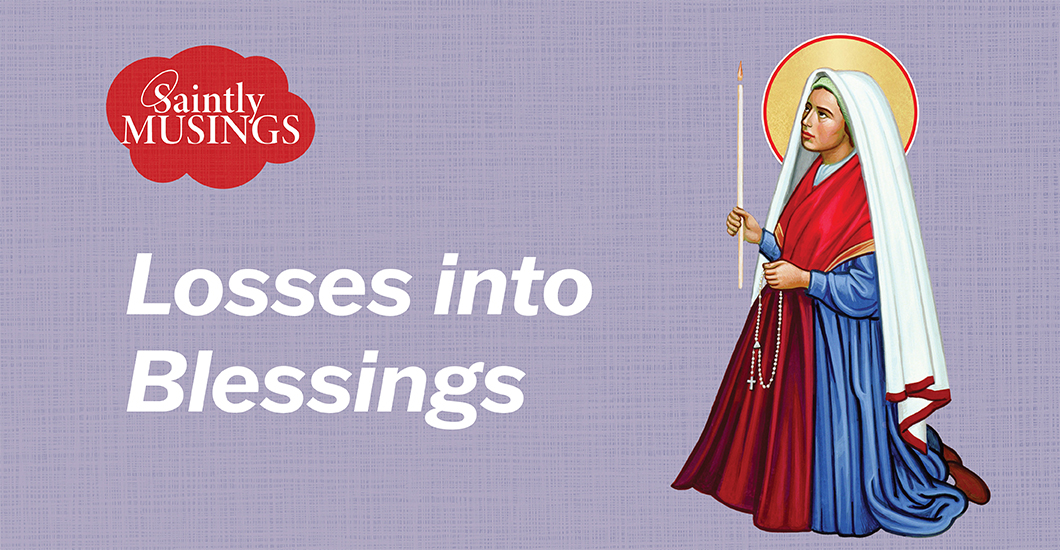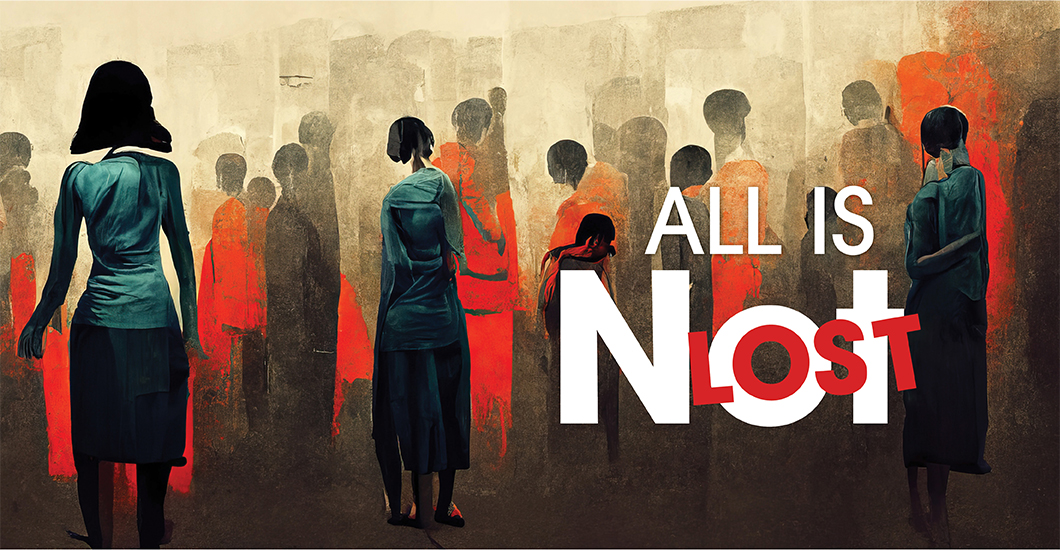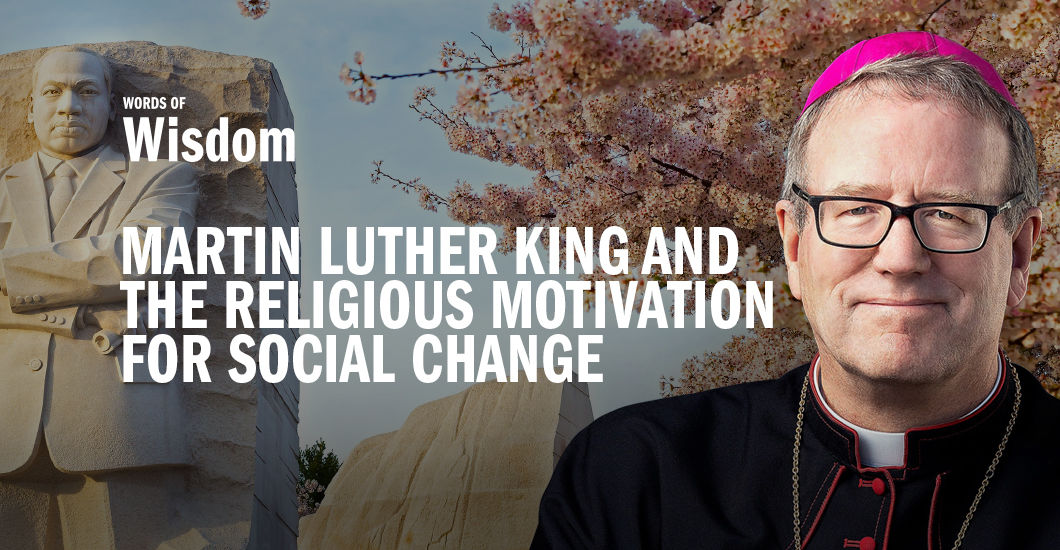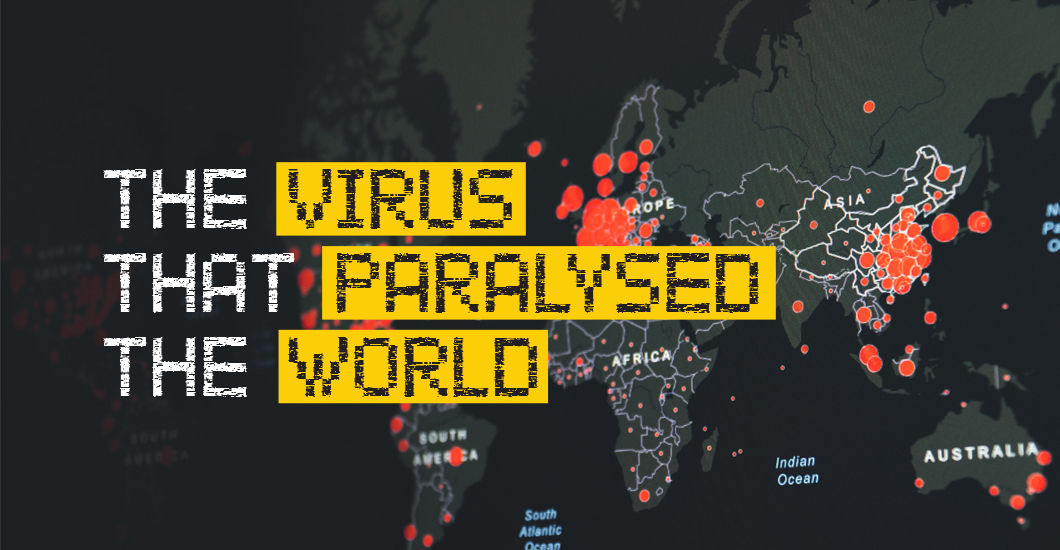Trending Articles
The Secret to a Joyful Life
What is the way out of fear, anxiety, and depression?
Christians believe that God is three in One. We profess faith in God the Father, God the Son, and God the Holy Spirit. Behaviorally, however, we place our emphasis on the first two Persons of the Trinity—we pray the Our Father and believe He sent His Son, Jesus, for our salvation. And, while we recognize that the Holy Spirit is the divine “Lord and giver of Life,” we tend to forget the Spirit and don’t give Him the opportunity to give us Life! Let’s revisit the story of Pentecost and rediscover how the Holy Spirit can be the “Lord and giver of life” for us, because without the Spirit, our faith becomes a barren, joyless moralism.
The second chapter of Acts (vs. 1-11) describes the Apostles’ encounter with the Holy Spirit and how they behaved afterwards. Following fifty days of uncertainty, something big is about to happen. Jesus had entrusted His Mission to the Apostles the previous week, but are they ready to proclaim the risen Lord? Can they set aside their doubts and fears? The coming of the Holy Spirit changes everything. The disciples are no longer afraid. Before, they feared for their lives; now, they are ready to preach the Good News to all the nations with a zeal that cannot be suppressed. The Holy Spirit neither takes away all their difficulties nor the opposition of the religious establishment. But the Spirit endows them with a dynamism that enables them to proclaim the Good News to the ends of the earth.
How did this happen? The lives of the Apostles needed to be radically changed, and the gift of the Spirit is how that change occurred. In the Spirit, they encountered the third person of the Trinity—a real person, not just a force, but a person with whom we can be in relationship. While we know the Father as Creator, and the Son as Redeemer, we come to know the Spirit as Sanctifier, the one who makes us holy. It is the Holy Spirit that makes Jesus live within us.
While Jesus is no longer physically present among us, He remains within us through the Holy Spirit. And that Spirit brings peace—a peace that does not free us from problems and hardships, but enables us in our problems to find peace, to persevere, and to hope because we know we are not alone! Faith is not a problem-solving enterprise: when one problem goes away, another takes its place. But faith assures us that God is with us in our struggles, and that the love of God and the peace Jesus promised are ours for the asking.
In today’s frenzied world, super-charged by social media and our digital devices, we find ourselves pulled in a thousand directions, and sometimes we get burned out. Then we look for the quick fix, sometimes resorting to self-medication through alcohol or pill-popping, or one hedonistic thrill after another.
During such restlessness, Jesus enters our lives through the Holy Spirit and says, “Peace be with you!” Jesus throws us an anchor of hope. As Saint Paul says in his letter to the Romans, the Spirit keeps us from falling back into fear, for He makes us realize that we are beloved children of our heavenly Father (Romans 8:15).
The Holy Spirit is the Consoler, who brings the tender love of God into our hearts. Without the Spirit, our Catholic life unravels. Without the Spirit, Jesus is little more than an interesting historical figure, but with the Holy Spirit He is the risen Christ, a powerful, living presence in our lives here and now. Without the Spirit, Scripture is a dead document. But, with the Spirit, the Bible becomes the living Word of God, a word of life. The living God speaks to us and renews us through His Word. Christianity without the Spirit is joyless moralism; with the Spirit, our faith is life itself—a life we can live and share with others.
How can we invite the Holy Spirit into our hearts and souls? One way is by reciting a simple prayer: “Veni Sancte Spiritus” (“Come, Holy Spirit”). Another way to deepen your relationship with the Holy Spirit is to reflect upon the seven Gifts of the Holy Spirit, which we receive at Confirmation. Find a commentary on wisdom, understanding, counsel, fortitude, knowledge, piety, and fear of the Lord, and strive to integrate these gifts into your everyday life.
A good way to know if you are living the gifts of the Spirit is to ask yourself if your life manifests the fruits of the Holy Spirit (found in Paul’s letter to the Galatians [5:22-23]). If love, joy, peace, patience, kindness, goodness, faithfulness, gentleness, and self-control are present in your life, then you know the Holy Spirit is at work!
Prayer: Come Holy Spirit, fill the hearts of your faithful and kindle in us the fire of your divine love! Endow us with your gifts and make our lives fertile ground that produces an abundance of love, joy, peace, patience, kindness, goodness, faithfulness, gentleness, and self-control. AMEN.

Deacon Jim McFadden ministers at the Saint John the Baptist Catholic Church in Folsom, California. He serves in adult faith formation, baptismal preparation, and spiritual direction.
Related Articles
The Mexican Revolution which began in the early 1920s, led to the persecution of the Catholic community in that country. Pedro de Jesus Maldonado-Lucero was a seminarian at that time. Once he became a priest, despite the risk, he stood with his people. He tended to his flock during a terrible epidemic, founded new apostolic groups, reestablished associations, and ignited Eucharistic piety among his parishioners. Upon discovering his pastoral activities, the government deported him, but he managed to return and continue serving his flock, in hiding. One day, after hearing the confessions of the faithful, a gang of armed men busted his hiding place. Father Maldonado managed to grab a reliquary with Consecrated Hosts as they forced him out. The men forced him to walk barefoot throughout the town, as a crowd of the faithful followed him. The city mayor grabbed Father Maldonado's hair and dragged him toward the city hall. He was knocked to the ground, resulting in a skull fracture that popped out his left eye. He had managed to keep his grip on the pyx until this time, but now it fell out of his hands. One of the thugs took some Holy Hosts, and as he forcefully stuffed the hosts inside the priest’s mouth, he shouted: “Eat this and see if He can save you now.” Little did the soldier know that just the night before, during the Holy Hour, Father Maldonado had prayed that he would happily give his life for an end to the persecution ‘if only he would be allowed to take Communion before his death.’ The thugs left him for dead in a pool of his own blood. Some local women found him still breathing and rushed him to a nearby hospital. Father Pedro Maldonado was born into eternal life the next day, on the 19th anniversary of his priestly ordination. Pope John Paul II canonized this Mexican priest in 2000.
By: Shalom Tidings
MoreWhatever the situation you are going through, God will make a way where there seems to be no way… Today, my son Aaric brought home his dictation book. He got a red star with a ‘good’ remark. This might not be a big deal for a kindergartener, but for us, it is a celebrated achievement. The first week of school, I got a call from his class teacher. We dreaded this call, my husband and I. As I tried hard to explain his communication skills (or lack thereof) to his teacher, I remember confessing that while I cared for his big sister with special needs, I had fallen into this pattern of doing things without being asked. As she could not utter a single word, I had to guess her needs. The same mode was turned on for Aaric, too, in his early days. Even before he asked for water, I would give it to him. We had a bond that didn’t need words, a language of love, or so I thought. How miserably wrong I was! Not much later, when his little brother Abram turned three months old, I had to take those heavy steps again to see the counselor at school. This time, it was about Aaric’s poor writing skills. His dear class teacher panicked when she saw him drop his pencil on the table and stubbornly fold his hands as if to say: “I won’t write.” We dreaded this, too. His little sister Aksha was an expert at scribbling at the age of two, but Aaric wouldn’t even hold the pencil. He just didn’t fancy it. The First Step After receiving instructions from the counselor, I visited the principal, who insisted that we undergo a thorough assessment if his communication continues to be weak. I couldn’t even think of that back then. For us, he was a miracle baby. After what we went through with our firstborn and three miscarriages, Aaric had defied all odds. He was born full-term, unlike what the doctors had predicted. His vitals were normal at birth. “He’s a big baby!” exclaimed the doctor on bringing him out through a C-section. We watched him grow step by step with almost bated breath, praying nothing would go wrong. Aaric soon reached all his milestones. However, when he was just one year old, my father mentioned that he may need speech therapy. I brushed it off as being too early to diagnose. The truth was, I didn’t have the strength to face another problem. We were already worn out with all that our firstborn was going through. Anna was born preterm at 27 weeks. After many grueling days in the NICU, she was diagnosed with severe brain damage at three months and had epileptic seizures. After all the treatments and medications, our now 9-year-old daughter still battles with cerebral palsy and intellectual disability. She is unable to sit up, walk, or talk. Countless Blessings There’s a limit to holding off the inevitable, so six months ago, we reluctantly took Aaric to get an initial assessment. The ADHD diagnosis was hard. We struggled to accept it, but we still put him through speech therapy. At this point, he was only stuttering a few words. A few days back, I mustered the courage to go to the hospital with Aaric and get a full, thorough assessment. Mild autism was what they said. As we were going through the process of assessment, several questions were asked. To my surprise, my response to most of these questions was: “He wasn’t able to, but now he can.” Praise God! By the power of the Holy Spirit living in him, everything is possible. I believe that praying and blessing him every day before going to school has made a difference. The change was radical when he began to memorize Bible verses. And the beauty is that he recites those verses just when I need them. Indeed, the Word of God is living and active. I believe the transformation is ongoing. Whenever I feel low, God surprises me by making him say a new word. Amid the tantrums he puts up, and when everything seems to crumble down, my little girl, three-year-old Aksha, simply comes up and gives me a hug and a kiss. She really knows how to comfort her mama. I believe that God will surely intervene and heal our eldest daughter, Anna, too, for nothing is impossible for Him. Change is already visible—the number of times she goes into epileptic seizures has gone down tremendously. In our walk of life, things may not be going as expected, but God never leaves nor forsakes us. Just like oxygen that is essential yet invisible, God is ever present and provides the life we need so badly. Let us cling to Him and not doubt whilst in the darkness. May our testimony reveal the truth of how beautiful, wonderful, and loving our God is and how He transforms us to say: “I was …, but now I am ….”
By: Reshma Thomas
MoreLife is full of unexpected turns. Nearly six years after the death of her mother, Bernadette had to suffer the loss of her father too. Since leaving Lourdes to join the religious order, she never had a chance to see him. When assailed by this sudden demise, this is how Bernadette found strength—A sister found her crying in front of a statue of the Virgin Mary, and when the sister tried to console her, she said: “My sister, always have great devotion to the agony of our Savior. Last Saturday in the afternoon, I prayed to Jesus in agony for all those who would die in that moment, and it was precisely the very moment my father entered eternity. What a consolation it is for me to have helped him.” For Bernadette, the Saint who, as a little girl, had the apparition of Mary at Lourdes, life was not without troubles. She had to go through many tribulations; big and small humiliations bombarded her. She often said: “When my emotions are too strong, I remember the words of Our Lord: 'It is I, don’t be afraid.' I immediately appreciate and thank Our Lord for this grace of rejection and humiliation from those in authority. It is the love of this Good Master who would remove the roots from this tree of pride. The more little I become, the more I grow in the Heart of Jesus.”
By: Shalom Tidings
MoreI was going through my old prayer journal, wherein I had written prayer requests. To my amazement, every single one of them was answered! Anyone taking a cursory look at the news these days may find themselves despairing, wondering where God is, and needing hope. I know I have found myself in this position on certain days. We feel out of control, and we wonder what we can do about all of the horrible things we see. I want to share with you a story. A few years ago, I started keeping a journal of prayer requests of the people and things I was praying for. I often prayed a Rosary for these things, as I still do today for prayer petitions. One day, I came across an old journal of my written prayer requests. I began to peruse the pages of what I had written long ago. I was astounded. Each prayer had been answered—maybe not always in ways I thought they would be answered, but they were answered. These were no small prayers. “Dear Lord, please help my aunt stop drinking alcohol. Dear Lord, please help my infertile friend have children. Dear Lord, please heal my friend from cancer.” As I scrolled down the page, I realized that every single prayer had been answered. Many in a bigger and better way than I imagined. There were a couple that, at first glance, I thought had not been answered. One friend who needed healing from cancer had passed away, but then I remembered that she had confession and anointing of the sick before she died. She died peacefully in the mercy of God, surrounded by His healing grace. But other than that, the majority of the prayers were answered here in this world. Many prayer requests had seemed like impossible mountains, but they had been moved. God’s grace takes our prayers and our perseverance in prayer, and He moves all things toward good. In the quiet of my prayer, I heard a whisper: “I have been working all these things throughout time. I have been writing these stories. Trust me.” I believe we are in perilous times. But I also believe that we are made for these times. You may say to me: “Your personal prayer requests being answered seems great, but nations are at war.” And my response to that is, again, nothing is impossible with God, not even stopping war by using our prayers. I remember it happening in the past. We should believe that God can act that big right now. For those not old enough to remember, there was a scary time when it looked like a blood bath was coming. But through the power of the Rosary, things changed. I was in 8th grade, and I remember hearing about all the turmoil in the Philippines. Ferdinand Marcos was the dictator of that country at the time. It was shaping up to become a bloody battle with a few people already dead. A staunch critic of Marcos, Benigno Aquino, was assassinated. But it didn’t become a bloody battle. Cardinal Jaime Sin of Manila had asked people to pray. They went out in front of the military, praying the Rosary aloud. They stood in front of tanks praying. And then, a miraculous thing happened. The military laid down their weapons. Even the secular media, the Chicago Tribune, reported how “Guns fell to Rosaries.” The revolution was over, and the glory of God was seen. Don’t stop believing in miracles. Expect them. And pray the Rosary every chance you get. Lord knows our world needs it.
By: Susan Skinner
MoreAt the age of six, a little girl decided she did not like the words ‘prison’ and ‘hanged’. Little did she know that at the age of 36, she would be walking with death-row prisoners. In 1981, the shocking murders of two young children became front-page news in Singapore and around the world. Investigation led to the arrest of Adrian Lim, a medium who had sexually abused, extorted, and controlled a string of clients by fooling them into believing that he had supernatural powers, torturing them with electro-shock ‘therapy.’ One of them, Catherine, had been a student of mine who had gone to him to be treated for depression after her grandmother’s death. He had prostituted her and abused her siblings. When I heard that she was charged with participating in the murders, I sent her a letter and a beautiful picture of the Sacred Heart of Jesus. Six months later, she wrote back, asking, “How can you love me when I have done such bad things?” For the next seven years, I visited Catherine weekly in prison. After months of praying together, she wanted to ask forgiveness from God and all the people that she had hurt. After she had confessed her sins, she had such peace, she was like a different person. When I witnessed her conversion, I was beside myself with joy, but my ministry to prisoners was just beginning! Tracing Back I grew up in a loving Catholic family with 10 children. Every morning, we would all go to Mass together, and my mother would reward us with breakfast in a coffee shop near the church. But after a while, it stopped being about food for the body and became solely about nourishment for the soul. I can trace my love for the Eucharist to those early morning Masses with my family where the seed of my vocation was sown. My father made every one of us feel especially loved, and we never failed to run joyfully into his arms on his return from work. During the war, when we had to flee Singapore, he would home-school us. He’d teach us phonetics every morning, asking us to repeat a passage in which someone was sentenced to death at Sing Sing prison. At the tender age of six, I already knew that I didn’t like that passage. When it was my turn, instead of reading it, I recited the Hail Holy Queen. Little did I know that I would one day be praying with prisoners. It’s Never Too Late When I began visiting Catherine in prison, several other prisoners showed interest in what we were doing. Whenever a prisoner requested a visit, I was glad to meet with them and share God’s loving mercy. God is a loving Father who is always waiting for us to repent and turn back to Him. A prisoner who has broken the law is similar to the Prodigal Son, who came to his senses when he reached rock bottom and realized, “I can go back to my Father.” When he returned to his Father, asking for forgiveness, the Father came running out to welcome him back. It is never too late for anyone to repent of their sins and turn back to God. Embracing Love Flor, a Filipino woman accused of murder, learned about our ministry from other prisoners, so I visited her and supported her as she appealed her death sentence. After the rejection of her appeal, she was very angry with God and wanted nothing to do with me. When I passed her door, I would tell her that God still loved her no matter what, but she sat in despair staring at the blank wall. I asked my prayer group to pray the Novena to Our Lady of Perpetual Succour and offer their sufferings specifically for her. Two weeks later, Flor had a sudden change of heart and asked me to come back with a priest. She was bubbling over joy because Mother Mary had visited her cell, telling her not to be afraid because she would stay with her until the end. From that moment, until the day of her death, there was only joy in her heart. Another memorable inmate was an Australian man who was imprisoned for drug trafficking. When he heard me singing a hymn to Our Lady to another prisoner, he was so touched that he asked me to visit him regularly. His mother even stayed with us when she came to visit from Australia. Eventually, he also asked to be baptized as a Catholic. From that day on, he was full of joy, even as he walked to the gallows. The superintendent there was a young man, and as this former drug dealer walked to his death, this officer came forward and embraced him. It was so unusual, and we felt it was like the Lord Himself embracing this young man. You just can’t help but feel God's presence there. In fact, I know that every time, Mother Mary and Jesus are there to receive them into heaven. It has been a joy for me to truly believe that the Lord who called me has been faithful to me. The joy of living for Him and for His people has been far more rewarding than anything else.
By: Sister M. Gerard Fernandez RGS
More“All we like sheep have gone astray; we have all turned to our own way…” (Isaiah 53:6) My current car has a lane departure warning system. Every time I stray out of my designated lane while driving, the car gives me a warning signal. This was annoying at first, but now I appreciate it. My old car did not have such advanced technology. I had not realized how often I drifted out of bounds while driving. Over the past few months, I have started participating in the Sacrament of reconciliation (Confession). For decades, I had ignored this practice. I felt like it was a waste of time. I thought to myself: Why does a person need to confess his sins to a priest when they can speak directly to God? Examining your conscience regularly is uncomfortable. Admitting your sins, out loud, is humiliating. But the alternative is even worse. It’s like refusing to look in a mirror for years. You may have all sorts of stuff stuck on your face, but you go about under the false impression that you look fine. These days, I try to go to Confession weekly. I take time for self-reflection and the examination of my conscience. I have noticed a change within me. Now, as I go through each day, my internal warning system has been reactivated. Every time I stray off the path of goodness by aimless striving and endless pursuits, my conscience gives me a signal. This allows me to get back on course before I wander too far into the danger zone. “For you were going astray like sheep, but now you have returned to the shepherd and guardian of your souls.” (1 Peter 2:25) The Sacrament of reconciliation is a gift that I disregarded for too long. I was like a sheep who had wandered away. But now I have turned to my Shepherd, the Guardian of my soul. He checks my spirit when I stray. He redirects me onto the path of goodness and safety.
By: Nisha Peters
MoreA principal reason why the civil rights movement of the 1950s and 1960s was so successful, both morally and practically, was that it was led largely by people with a strong religious sensibility. The most notable of these leaders was, of course, Martin Luther King. To appreciate the subtle play between King’s religious commitment and his practical work, I would draw your attention to two texts—namely, his Letter from the Birmingham City Jail and his “I Have a Dream” speech, both from 1963. While imprisoned in Birmingham for leading a nonviolent protest, King responded to certain of his fellow Christian ministers who had criticized him for going too fast, expecting social change to happen overnight. The Baptist minister answered his critics in a perhaps surprising manner, invoking the aid of a medieval Catholic theologian. King drew their attention to the reflections of St. Thomas Aquinas on law, specifically Thomas’ theory that positive law finds its justification in relation to the natural law, which finds its justification in relation to the eternal law. Aquinas means that what makes a practical, everyday law righteous is that it somehow gives expression to the principles of the moral law, which in turn are reflective of God’s own mind. Therefore, King concluded, unjust positive laws, such as the Jim Crow regulations that he was contesting, are not just bad laws; they are immoral and finally offensive to God. Here is King’s own language: “One may well ask: ‘How can you advocate breaking some laws and obeying others?’ The answer lies in the fact that there are two types of laws: just and unjust. I would be the first to advocate obeying just laws. One has not only a legal but a moral responsibility to obey just laws.” But then King contrasts this with obedience to an unjust law: “Conversely, one has a moral responsibility to disobey unjust laws. I would agree with St. Augustine that ‘an unjust law is no law at all.’” And in clarifying the difference, he turns to Aquinas: “Now, what is the difference between the two? How does one determine whether a law is just or unjust? A just law is a manmade code that squares with the moral law or the law of God. An unjust law is a code that is out of harmony with the moral law. To put it in the terms of St. Thomas Aquinas: An unjust law is a human law that is not rooted in eternal law and natural law.” This is not pious boilerplate; rather, it reveals what gave King’s movement its justification and purpose. The very same dynamic was on display six months later, when King addressed the throng who had gathered at the Lincoln Memorial for the March on Washington. He was not giving a sermon. He was making a political speech, advocating in the public place for social change. But attend to some of the language that he used: “I have a dream that one day every valley shall be exalted, and every hill and mountain shall be made low, the rough places will be made plain, and the crooked places will be made straight; ‘and the glory of the Lord shall be revealed and all flesh shall see it together.’” He was directly relating the social revolution he was advocating to the mystical vision of the prophet Isaiah. And listen to the magnificent conclusion of the address in which he artfully blends the lyrics of an American patriotic song to the lyrics of a song he and his family sang in church: “And when this happens, and when we allow freedom ring, when we let it ring from every village and every hamlet, from every state and every city, we will be able to speed up that day when all of God’s children, black men and white men, Jews and Gentiles, Protestants and Catholics, will be able to join hands and sing in the words of the old Negro spiritual: Free at last! Free at last! Thank God Almighty, we are free at last!” Once again, on King’s reading, the political nests within the moral, which nests within the sacred. Martin Luther King derived from his religious heritage not only the metaphysics that informed his social activism, but also the nonviolent method that he employed. What Jesus reveals in the rhetoric of the Sermon on the Mount (“Love your enemies”; “Bless those who curse you, pray for those who maltreat you”; “If someone strikes you on the right cheek, turn and give him the other”; etc.) and even more strikingly in his word of forgiveness from the cross is that God’s way is the way of peace, nonviolence, and compassion. As a Christian, King knew in his bones that reacting to oppression with violence would only exacerbate the tensions within society. He sums up this principle in one of his best-known sermons: “Returning hate for hate multiplies hate, adding deeper darkness to a night already devoid of stars. Darkness cannot drive out darkness; only light can do that. Hate cannot drive out hate; only love can do that.” Within the confines of this brief article, I cannot begin adequately to address the social upheaval occurring in our culture today. But I will say simply this: it is indisputably clear that there are severe moral deficits in our society that must be addressed, but the best way to do so is from within a moral and finally religious framework. May Martin Luther King’s model of leadership in this regard be a lodestar.
By: Bishop Robert Barron
MoreHappiness is a ring on your finger Have you ever wondered why the finger next to the pinkie is traditionally the one with the wedding ring? The Chinese came up with this explanation. Let’s try a simple exercise. Join your hands in prayer with the fingers pointing up. Now move your palms with the fingertips still touching each other. Bend both middle fingers downward so that the tips of these fingers are now pointing down and the backs of both fingers are touching. Allow the hands to remain in this position, then try pulling back the thumbs and allowing them to touch again. This is quite easy. The thumbs represent your relationship with your parents. In your childhood, you live with them and important decisions can’t be made without them, but at some point in life, you usually start making decisions on your own and move out. You separate physically from them. Now, try the same motion for the index finger. Notice that it is also easy to do this with your index and pinkie fingers, which represent siblings and children. You will not be living with your siblings or your children all your life. Finally, try to move the ring fingers, which represent you and your spouse. It is impossible unless you separate the middle fingers. So, what do the middle fingers bent downward represent? - The sacrament of Matrimony. When a man and a woman make vows of commitment to each other until death, they are bonded by God into a one flesh union, as husband and wife. If the middle fingers are separated it is easy to pull the ring fingers away from each other. So, spouses can only be separated by death, or by breaking their covenant with God and each other. Today, we see a lot of confusion about the meaning, value and purpose of marriage and an increase in broken families. Tension between spouses is amplified by the modern world’s exclusion of God from relationships. When marriage is about personal fulfillment, people become preoccupied by the flaws, shortcomings and failures of their spouses and of others. Perhaps this is why Pope St John Paul II, anticipating this degeneration of modern society, exhorted the people of Australia, “As the family goes, so goes the nation and so goes the whole world in which we live. Do not be afraid to take a chance on Peace – to teach Peace, to live Peace… Love between man and woman cannot be built without sacrifices and self-denial.” When they fail to do this, we have chaos in the family and chaos in the world. He also reminded the people of the United States that “Freedom consists not in doing what we like, but in having the right to do what we ought.” Protect each other When the woman caught in adultery was brought before Jesus(Jn 8: 3-11), those who condemned her dragged her into the middle of the crowd to expose her shame and humiliate her publicly. Jesus unexpectedly responded by unmasking their own sinfulness, instead of embarrassing her further. When the crowd melted away in reaction to his challenge, He (the only sinless one among them) forgave her and encouraged her not to sin again. When we contemplate the Bible’s description of St Joseph’s treatment of women, we see the same compassionate behaviour. When he was told that Mary was with child, Joseph was unwilling to expose her to shame. Jesus and Joseph both followed the same action plan. The woman before them should not be publicly shamed, but treated with respect and kindness. My wife and I are not perfect. We both have our share of weaknesses. When I became her husband, I received a special grace to be her champion, so that her deficiencies, faults and failures are not exposed to anyone, even close family members. When I, as a husband, fail to fulfill this mission, then an attitude of disapproval poisons our family life and needs to be remedied. Even before our marriage, we had often spoken about this. Both of us had seen plenty of examples, among our family and friends, of a husband or wife badmouthing the other at social events. Recently my wife pointed out an opposite example. We had known this couple for a long time, but recently, when my wife interacted more closely with the wife, she noticed weaknesses in her character. My wife told me something that made me seriously consider my own attitude in this area. She said that in all the years we had known and interacted with this couple, her weaknesses had never been exposed because her husband shielded her so well. Unquenchable Fire “Be who God meant you to be and you will set the world on fire” (St Catherine of Siena). Becoming the person God meant you to be is not easy or quick to achieve. Short-term sacrifices won’t keep the fire blazing. In the early stages of my marriage, I was motivated to go out of my way to serve my wife. I did this with sincerity, but also some discomfort as I stretched myself to meet her needs. However, I became inordinately proud of myself for doing so. Those affectionate courtesies that dominated the early phase of my marriage began to diminish because I started to feel that I had done enough to earn the respect I desired. Then I realized that a few considerate actions, were not going to convert anyone in my family, because my intentions were self-centred. If I wanted to lead my wife and kids to Heaven, I needed to engage in a lifetime of self-sacrificial actions. Marriage isn’t a contract where each of the partners gives 50% and gets 50%. It is a covenant relationship where each of the spouses gives 100% of what they have to give and receives the wholehearted support of their spouse. As Pope St John Paul II put it so well, “Love consists of a commitment which limits one’s freedom. It is a giving of the self, and to give oneself means just that: to limit one’s freedom on behalf of another.” (Love and Responsibility). So, I began to treat my wife and children as if I were hosting the Holy Family in my home as honoured guests. Sometimes my actions aren’t noticed or appreciated, but the Holy Family never fails me. They taught me true joy and I have never had more refreshing sleep. The next day I get up and do it all over again, not relying on my own strength but by depending on the Lord’s mighty power. I believe family life is strangled by service that is limited and calculated. However, service that costs us something - that is sacrificial - invigorates and inspires reciprocal loving service. This is the path to sainthood. Lord Jesus, help me to contemplate The Holy Family. In this age, when the attack on the family is so fierce, help me to spend more time in prayer with the Holy Family so that I may care better for my loved ones. Help me to unselfishly grow in holiness so that I may lead my family to encounter your unfailing love and mercy. Amen. Jesus, Mary and Joseph, protect our families.
By: Jenson Joseph
MoreThe coronavirus is indeed causing havoc in the world today; but is there a virus deadlier than this? As I write this, almost the whole world is in the grips of the virus that has paralysed mankind. Who would have thought that in this age of advanced technology, with daily scientific discoveries, we could be taken by surprise? Or that, while mankind has ventured to nearby planets, our plans for our lives and our future together on earth could be so dampened that we will be forced to live an inferior lifestyle, very different to what we are used to? 2020 has barely begun, but Australia (where I live) has already suffered several disastrous events, culminating in the current crisis. The year began with catastrophic bushfires which burned massive tracts of land, killed numerous people and animals and destroyed many, many homes and properties. Smoke darkened our skies, intruded into our homes and even interfered with sporting fixtures. Just as we were starting to recover from that, extensive storms and heavy rain struck, pelting some places with huge hailstones and causing flash floods. Just when we thought we can now move on; the Coronavirus has invaded our lives. Now, we are all enduring the stifling restrictions which are crippling our economies, our communities, our education and our access to the sacraments. Mankind is afraid and though many still show a brave face, we are all aware that some of us may not see tomorrow. Currently much of the world is in a war-like situation. Some people are fighting for toilet rolls, stockpiling food for months and cutting off all physical contact. All public places except essential services are closed and New York - the centre of international business - is now under the supervision of the National guard. This is an extraordinarily difficult time for leaders of all nations as they venture into uncharted territories. A few of them have even contracted the virus themselves. The virus, and all the restrictions it has caused, can only damage us physically and psychologically. Scripture teaches us that the body is the temple of the Holy Spirit, so we must protect and care for it, but Jesus reminded us not to fear what can only kill the body. Our souls are invaluable in God’s sight and it lives forever. Jesus came into a world focused on the physical life and material things to show us that the spiritual life is more important than anything else. The flesh must pass away, but the soul will live on eternally. The real virus that has paralysed mankind today is SIN. No other virus has ever caused greater damage than the virus of SIN that has crippled and degenerated us so much that many are already living dead, empty lives, fulfilling no other purpose than to entertain themselves. Sin has distanced us from God, darkened our minds, hardened our hearts, dulled our ears, blinded our eyes and sickened our souls. This is far more terrible than being unable to move around freely doing what we like. We could face an eternity separated from all that is good, unless we change our ways. Jesus took up the burden of sins of all mankind and died for all of us, so we could live with Him forever. So, we need not fear death if we accept His salvation and follow Him daily. We will all die one day and because of our hope in Jesus, we can rejoice as death approaches. So if you are a Christian, this is the time to showcase our faith, to be fearless, trusting in the life that Jesus has already offered and prepared for us. This is the time as the church teaches, to receive spiritual communion. The heart of a Christian would be full of joy in this time since nothing can separate us from the love of Christ. And any sickness especially leading to death is a time of great rejoicing for such a person. As St Paul says, “For to me to live is Christ and to die is gain” Philippians 1:21. We must now, without fail, pray for mercy and forgiveness on behalf of our brothers and sisters who do not know Him and haven’t accepted HIM as their Lord and Saviour and are unaware of the joy of that relationship. We must also do whatever is possible to help those around us as inspired by the Holy Spirit. For those who only follow a tradition by going to church every Sunday and do not really share a relationship with God, this is your time to look deep within your heart where Christ awaits you. This is where HE always desired to meet you. Instead of filling the free time with empty things during this shutdown, seize the opportunity to spend time in silence, read the Bible and allow HIS word to take flesh in your life. There is no better time than this to forgive and to ask forgiveness from those whom we have offended. For those who are still following other man-made religions/ways of life (receiving some sort of temporal satisfaction), Jesus declares that HE is the truth, the way and the life. This means that if you are really searching for the truth, all roads will lead you to Jesus Christ alone. Are you searching for the truth or are you settling for breadcrumbs falling off the table? For those who are depending only on their good works or those who are following nothing at all, this is your time to reflect on your inner life and give your souls and hearts to Jesus and be saved. “Taste and see that the Lord is good” Psalm 34:8. Let’s prepare ourselves for our last day that will come at an hour we do not expect. It may be when Jesus will return in glory to gather all those who love and follow Him. Or it may be at any moment before that. Chris Hadfield, the first Canadian to walk in space states that astronauts do not go into space with their fingers crossed and that the more you know, the less you fear. In other words, the less you know, the more you fear. I encourage you to know Jesus Christ, the Son of God, for to know him is to know the truth (John 8:32) and to have eternal life (John 17:3). Let us recognise that the real virus that afflicts us is Sin. Let us allow Jesus to take over our lives, deliver us from sin and lead us to eternal life.
By: Cyril Abraham
MoreBy now most of you are probably aware of the depressing statistics regarding the “nones,” that is to say, those in this country who claim no religious affiliation. The most recent survey showed that now fully one fourth of Americans belong to no religion at all—that’s approximately 80,000,000 people. And among those in the 18-29 age group, the percentage of nones goes up to 40! This increase has been alarmingly precipitous. Fifty years ago, only a fraction of the country would have identified as unreligious, and even a decade ago, the number was only at 14%. What makes this situation even more distressing is that fully 64% of young adult nones were indeed raised religious but have taken the conscious and active decision to abandon their churches. Houston, we definitely have a problem. I have written frequently regarding practical steps that religious leaders ought to be taking to confront this rising tide of secularist ideology, and I will continue to do so. But for the moment, I would like to reflect on a passage from the Gospel of Luke, which was featured on the Solemnity of Mary the Mother of God, and which sheds considerable light on this issue. It has to do with the visit of the shepherds to Mary and the Christ child in the stable at Bethlehem, and it hinges on three words: haste, astonished, and treasured. We hear that, upon receiving the angel’s message, the shepherds “went in haste” to visit the holy family. This echoes a passage from a bit earlier in Luke’s Gospel: having heard the news of her own pregnancy and that of Elizabeth, Mary, we are told, “went in haste” to the hill country of Judah to help her cousin. The spiritual truth that both of these pericopes disclose is that energy, verve, enthusiasm, and a sense of mission come precisely from a good that is perceived to be both objective and transcendent to the ego. If I might borrow the language of Dietrich von Hildebrand, it is only the objectively valuable—as opposed to the merely subjectively satisfying—that fills the mind and soul with passion and purpose. When the sense of objective and transcendent value is attenuated—as it necessarily is within the context of a secularist worldview—passion and mission fade away. John Henry Newman said that what gives a river verve and movement is precisely the firmness of its banks. When those banks are broken down, in the interest of a supposed freedom, the once energetic body of water spreads out into a great lazy lake. What we have in our secularist culture, which denies the transcendent good, is a subjectivism that gives rise to the “whatever” attitude. Toleration and self-assertion reign supreme; but no one goes anywhere in haste. Rather, we all rest on our individual air mattresses in the midst of the placid but tedious lake. The second word I want to emphasize is “astonished.” Luke tells us that those who heard the shepherds’ testimony were “astonished” at the news. The King James Version renders this as “they wondered at” the message. Wonder, amazement, and astonishment happen when the properly transcendent power breaks into our ordinary experience. The findings of the sciences delight and inform us, but they don’t astonish us, and the reason for this is that we are finally in control of the deliverances of the scientific method. We observe, we form hypotheses, we make experiments, and we draw conclusions. Again, this is all to the good, but it doesn’t produce amazement. Dorothy Day witnessed to the astonishing when she said, upon the birth of her first child, that she felt a gratitude so enormous that it would correspond to nothing or no one in this world. Mother Teresa was properly amazed when, on a lengthy train journey to Darjeeling, she heard a voice calling her to minister to the poorest of the poor. The apostles of Jesus fell into wonder when they saw, alive again, their master who had been crucified and buried. These are the most precious kinds of experiences that we can have, and if St. Augustine is right, they alone can satisfy the deepest longing of the heart. A secularist ideology—the worldview embraced by the “nones”—produces the clean, well-lighted space of what we can know and control. But it precludes true astonishment, and this leaves the soul impoverished. The final word from Luke upon which I’d like to reflect is “treasured.” The evangelist tells us that Mary “treasured these things, pondering upon them in her heart.” Newman said that Mary, precisely in this contemplative, ruminative frame of mind, is the model of all theology. I’d press it further. She is the real symbol of the Church in its entire function as the custodian of revelation. What is the Sistine Chapel? What is Notre Dame Cathedral? What is The Divine Comedy of Dante? What is the Summa contra gentiles of Thomas Aquinas? What are the sermons of John Chrysostom? What are the teachings of the great ecumenical councils? What is the liturgy in all of its complexity and beauty? These are all means by which the Church stubbornly, century in and century out, treasures the astonishing events of God’s self-manifestation. Up and down the ages, the Church ponders what God has done so that the memory of these mighty deeds might never be lost. As such, she performs an indispensable service on behalf of the world—though the world might not have any sense of it. She keeps holding up the light against the darkness. So to the “nones” and to those who are tempted to move into secularism, I say, don’t float on the lazy lake; rather, go in haste! Don’t settle for something less than astonishment; be amazed! Don’t fall into spiritual amnesia; treasure!
By: Bishop Robert Barron
MoreLatest Articles
Does God have preferences and favorites? My father, a first-generation Italian immigrant, had a warm, colorful, and inviting family. You’d be welcomed into their homes with double-cheeked kisses just as ever-present aromas of either espresso, garlic, focaccia, or cannoli welcomed your nose and stomach. My mother, on the other hand, had generations of thick deep multicultural roots in Kentucky. Her side of the family made the best southern apple pies, but had more distant and refined demeanors and affections. Each side of the family had its own set of behaviors and custom expectations to follow, and it was confusing to understand which way was correct. These differences and the perceived need to choose between both have been a foundational dilemma for me. It seems as though I’ve always been trying to understand the world by seeking the ultimate source of truth. Making Sense of it All Throughout life, I’ve tried to find reasoning in how and why the world, and all its parts, function together. God must have known I’d be destined to question things and be inquisitive of His creations because He made sure I was pointed in the right direction to turn to Him. The Catholic Elementary school I attended had a young wonderful nun as one of my teachers. She seemed to have the same love and curiosity of the world that God had given me. If she didn’t have all the answers, I was pretty certain she knew who did. We were taught that there was only one God and we were all made in the image and likeness of God. We’re unique, and God loves us all very much. He loved us so much that even before Adam and Eve knew the depth and ramifications of their sin, God already had the merciful plan of sending Jesus, His Son, to save us from that original sin. There was so much in that lesson for a little girl to unpack and understand. It still leaves me asking questions. However, it was the ‘image and likeness’ part of that lesson that I had to explore. Observing my family, classroom, and community, it was obvious there were vast differences in hair color, skin color, and other features. If we are all unique, yet made in the image and likeness of only ONE God, then what did He look like? Was He dark-haired like me? Or blonde like my best friend? Was His skin olive colored, that tanned deeply in the summer, like my father’s and mine, or was He fair-skinned like my Mom, who turned red and burnt easily under the hot Kentucky sun? Beautiful Varieties I grew up with variety, was comfortable with variety, and loved variety, but I wondered—did God have a preference? In Kentucky, in the 1960s, it was apparent that even if God didn’t have a preference, some people did. That was so hard for me to understand. Didn’t the young Sister tell me that God made all of us? Doesn’t that mean that He purposely made all the wonderful varieties in this world? I searched for the source of truth and sometime in my early 30s, a deep yearning to learn more about God led me straight into prayer and the Scripture. Here, I was blessed to learn that He was also looking for me. Psalm 51:6 spoke straight to my heart: “Behold, You desire truth in the innermost being, therefore teach me wisdom in my secret heart.” As time passed, God showed me there was a difference in the way He saw things versus how the world viewed things. The more I read the Bible, prayed, and asked questions, the more I came to know that God is the source of truth. “Jesus said to him, ‘I am the way, and the truth, and the life. No one comes to the Father except through me.’” (John 14:6) How wonderful it was to finally understand that Jesus is the source of truth! However, that was not all! God was the teacher now, and He wanted to make sure I understood the lesson. “Again Jesus spoke to them, saying: I am the light of the world. Whoever follows me will never walk in darkness but will have the light of life.’” (John 8:12) I had to read it again…Jesus said: ”I am the light of the world…” My brain began to speed up, gears began to engage, and things began to fall into place. My childhood science lessons taught me that ‘light is the source of all colors.’ Therefore, if Jesus is light, then He encompasses all the colors; all colors of the human race. That nagging childhood question was finally answered. What Color is God? Quite simply, He is light. We are made in His image and likeness, and He has no preference for color because He is ALL color! All His colors are in us, and all our colors are in Him. We are all God’s children, and we are to “live as children of light” (Ephesians 5:8). So, why is the world so sensitive about the many wonderful colors of human skin? God doesn’t prefer one color to another, so why should we? God loves us and all the variety of colors that He made us. It is quite simple, we are called to reflect Him. We are called to bring His light into the world. In other words, we are called to bring God’s presence into the world that doesn’t see things as God wants it to see things. He needs and wants all our varieties to complete His image. Let’s try to reflect Him in this world by being the light we are created from and for. As God’s children whom He loves, let us begin to appreciate all His images as part of the ONE God that made us.
By: Teresa Ann Weider
MoreThe auction was closing, but one item remained unwanted. It was fierce competition with buyers competing to outbid each other for everything that was on offer. They eagerly snapped up all the items and the auction was closing up except for one single item—an old violin. Keen to find a buyer, the auctioneer held the string instrument in his hands and offered what he thought was an attractive price: “If anyone is interested, I would sell it for $100.” A deathly hush filled the room. As it became apparent that even that price was not enough to convince anyone to buy the old violin, he reduced the price to $80, then $50, and finally, in desperation, to $20. After another bout of silence, an old gentleman who sat at the back asked: “May I have a look at the violin, please?” The auctioneer, relieved that someone was showing interest in the old violin, conceded. At least the stringed instrument faced the prospect of finding a new owner and home. A Maestro’s Touch The old man rose from his seat at the back, slowly walked to the front, and carefully examined the old violin. Taking out his handkerchief, he dusted the surface and gently tuned each string until, one by one, they were in the right tones. Finally, and only then, did he place the old violin between his chin and left shoulder, lift the bow with his right hand, and start playing a piece of music. Each musical note from the old violin penetrated the silence in the room and danced delightfully in the air. It stunned everyone, and they listened attentively to what was coming out of the instrument in the hands of what was obvious to all—a maestro. He played a familiar classical hymn. The melody was so beautiful that it quickly enchanted everyone at the auction and they were awestruck. They had never heard of or even witnessed anyone playing music so beautifully, let alone on an old violin. And they never thought for one moment it would catch their fancy later on when the auction resumed. He finished playing and calmly returned the violin to the auctioneer. Before the auctioneer could even ask everyone in the room if they would still like to buy it, there was a rush in the raising of hands. Everyone suddenly wanted it after the impromptu masterly performance. From an unwanted item a short while earlier, the old violin was suddenly the focus of the most intense bidding competition of the auction. From the starting bid of $20, the price immediately shot up to $500. The old violin was ultimately sold for $10,000, which was 500 times more than its lowest asking price. Astounding Transformation It took only 15 minutes for the old violin to be transformed from something nobody wanted into the star of the auction. And it took a maestro musician to tune up its strings and play a wonderful melody. He showed that what looked unattractive on the outside was actually a beautiful and priceless soul inside the instrument. Perhaps, like the old violin, our lives normally do not seem to have much worth at first. But if we hand them over to Jesus, who is the maestro above all maestros, then He will be able to play beautiful songs through us and their melodies will stun listeners even more. Our lives, then, will catch the world’s attention. Everyone would then want to listen to the music that He produces out of our lives. The story of this old violin reminds me of my own story. I was metaphorically just like that old violin and nobody thought that I would be useful or could be doing something worthwhile with my life. They looked at me as if I had no value. However, Jesus took pity on me. He turned around, looked at me, and asked me: “Peter, what do you want to do with your life?” I said: "Master, where do you live?" “Come and see,” Jesus answered. So I came and saw where He lived, and stayed with Him. On the past 16th of July, I celebrated the 30th anniversary of my priesthood ordination. To know and experience Jesus’ great love for me…how could I thank Him enough? He has turned the old violin into something new and given it great value. Lord, may our lives become Your musical instrument, like that old violin, so that we may produce beautiful music people can sing forever, giving thanks and praise to Your wonderful love.
By: Father Peter Hung Tran
MoreLittle had I expected when I began this efficacious prayer... “O Little Thérèse of the Child Jesus, please pick for me a rose from the Heavenly garden and send it to me as a message of love.” This request, the first of three that compose the ‘Send Me a Rose’ Novena to Saint Thérèse, grabbed my attention. I was lonely. Lonely in a new city, longing for new friends. Lonely in a new life of faith, longing for a friend and role model. I was reading about Saint Thérèse, my baptismal namesake, without warming up to her. She had lived in passionate devotion to Jesus since she was 12 years old and petitioned the Pope to enter the Carmelite monastery at age 15. My own life had been so very different. Where’s My Rose? Thérèse had been filled with zeal for souls; she had prayed for the conversion of a notorious criminal. From the hidden world of the convent of Carmel, she devoted her prayer to interceding for missionaries spreading the love of God in far-off places. Lying on her deathbed, this holy nun from Normandy had told her sisters: “After my death, I will let fall a shower of roses. I will spend my Heaven doing good on earth.” The book I was reading said that since her death in 1897, she had showered the world with many graces, miracles, and even roses. “Maybe she will send me a rose,” I thought. This was the very first Novena I ever prayed. I didn’t think much about the prayer’s two other requests–namely the favor of interceding with God for my intention and to believe intensely in God’s great love for me so that I might imitate Thérèse’s Little Way. I don’t recall what my intention was and I had no understanding of Thérèse’s Little Way. I was focused solely on the rose. On the morning of the ninth day, I prayed the Novena for the last time. And waited. Maybe a florist will deliver roses today. Or maybe my husband will come home from work with roses for me. By the end of the day, the only rose that had crossed my doorstep was printed on a card that came in a pack of greeting cards from a missionary order. It was a bright red, beautiful rose. Was this my rose from Thérèse? My Unseen Friend Once in a while, I prayed the Send Me a Rose Novena again. Always with similar results. Roses would show up in little, hidden places; I would meet someone named Rose, see a rose on a book cover, in the background of a photo, or on a friend’s table. Eventually, St. Thérèse came to mind any time I glimpsed a rose. She had become a companion in my daily life. Leaving the Novena behind, I found myself asking her intercession in life’s struggles. Thérèse was now my unseen friend. I read about more and more Saints, marveling over the variety of ways these men, women, and children had lived a passionate love for God. Knowing this constellation of people, whom the Church has declared with certainty are in Heaven, gave me hope. In every place and in every life, it must be possible to live with heroic virtue. Holiness is possible even for me. And there were role models. Lots of them! I tried imitating Saint Francis de Sales’ patience, Saint John Bosco’s attention and gentle guidance for each child in his care, and Saint Elizabeth of Hungary’s charity. I was grateful for their examples that helped me along the way. They were important acquaintances, but Thérèse was more. She had become my friend. A Jump-Start Eventually, I read The Story of a Soul, Saint Thérèse’s autobiography. It was in this personal testimony that I first began to understand her Little Way. Thérèse imagined herself spiritually as a very little child capable of only very small tasks. But she adored her Father and did each little thing with great love, and as a gift for the Father who loved her. The bond of love was greater than the size or success of her undertakings. This was a new approach to life for me. My spiritual life was at a standstill at that time. Maybe Thérèse’s Little Way could jumpstart it. As the mom of a large and active family, my circumstances were far different from Thérèse’s. Maybe I could try approaching my daily tasks with the same loving attitude. In the littleness and hiddenness of my home, much as the convent had been for Thérèse, I could try to do each task with love. Each could be a gift of love for God; and by extension, of love for my husband, my child, the neighbor. With some practice, each diaper change, each meal I placed on the table, and every load of laundry became a small offering of love. My days became easier, and my love for God grew stronger. I was no longer lonely. In the end, it took far longer than nine days, but my impulsive request for a rose set me on a path to a new spiritual life. Through it, Saint Thérèse reached out to me. She drew me into love, to the love that is the communion of the Saints in Heaven, into practicing her “Little Way” and, most of all, into greater love for God. Ultimately I received far more than a rose! Did you know that Saint Thérèse’s feast is on October 1? Happy feast to the Therese-namesakes out there.
By: Erin Rybicki
MoreWhen was the last time you placed your hands on your child’s head, closed your eyes, and wholeheartedly prayed for them? Blessing our children is a powerful act that can shape their lives in profound ways. Biblical Examples: "David went home to bless his household." (1 Chronicles 16:43) This simple act highlights the importance of speaking positive words over our loved ones. The Lord said to Moses: “This is how you are to bless the Israelites: ‘The Lord bless you and keep you; the Lord make His face shine on you and be gracious to you; the Lord turn His face toward you and give you peace.’” (Numbers 6:22–26) These words convey God's protection, favor, and peace. Encouragement and Exaltation: When we bless someone, we encourage them, lifting them up with positive affirmations. At the same time, we exalt God by acknowledging His goodness and grace. Blessings create a positive atmosphere where children feel loved, valued, and secure. Imparting Identity: Blessings help shape a child's identity. When parents speak words of blessings over their children, they affirm their worthiness and purpose. Children internalize these messages, carrying them into adulthood. The Power of Words: In a study of team performance, Harvard Business School found that high-performing teams received nearly six positive comments for every negative one. Blessings go even further than positive comments. When we bless someone, we declare truth over them—God's truth! Children are like sponges, absorbing messages from their environment. By blessing them, we provide a counterbalance to the negative influences they encounter. As parents or caregivers, we have a responsibility to bless our children—speaking life-giving words that build them up emotionally, spiritually, and mentally. Be cautious not to curse them inadvertently through negative comments or harmful attitudes. Instead, intentionally bless them with love, encouragement, and God's truth.
By: George Thomas
More


